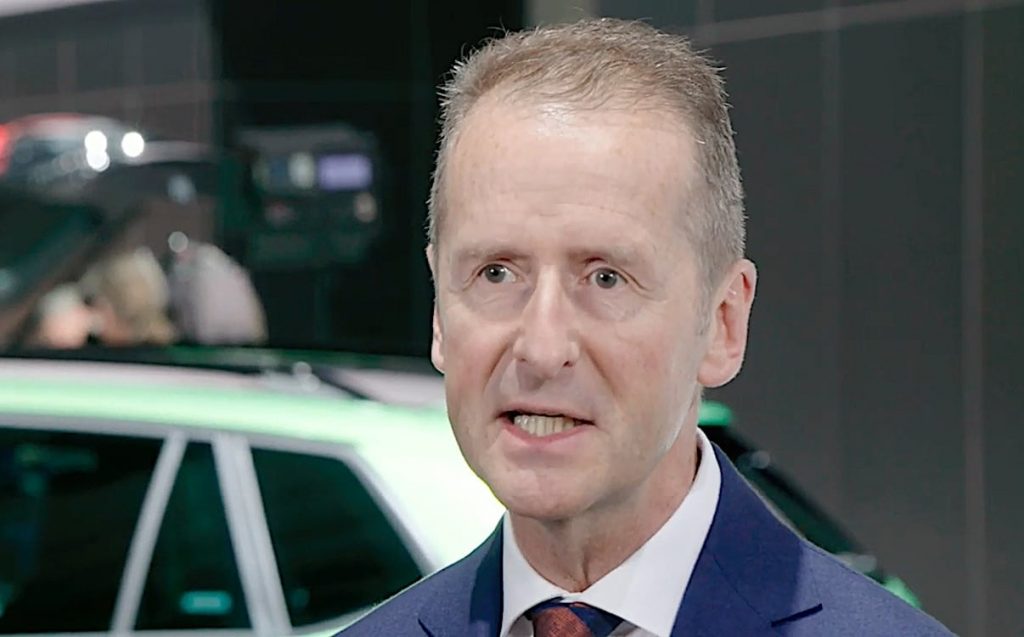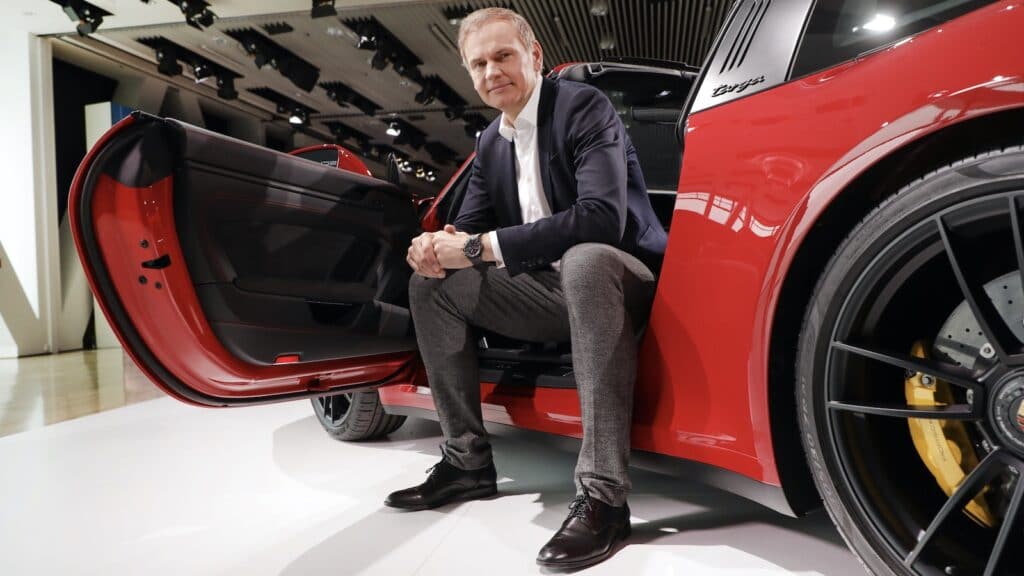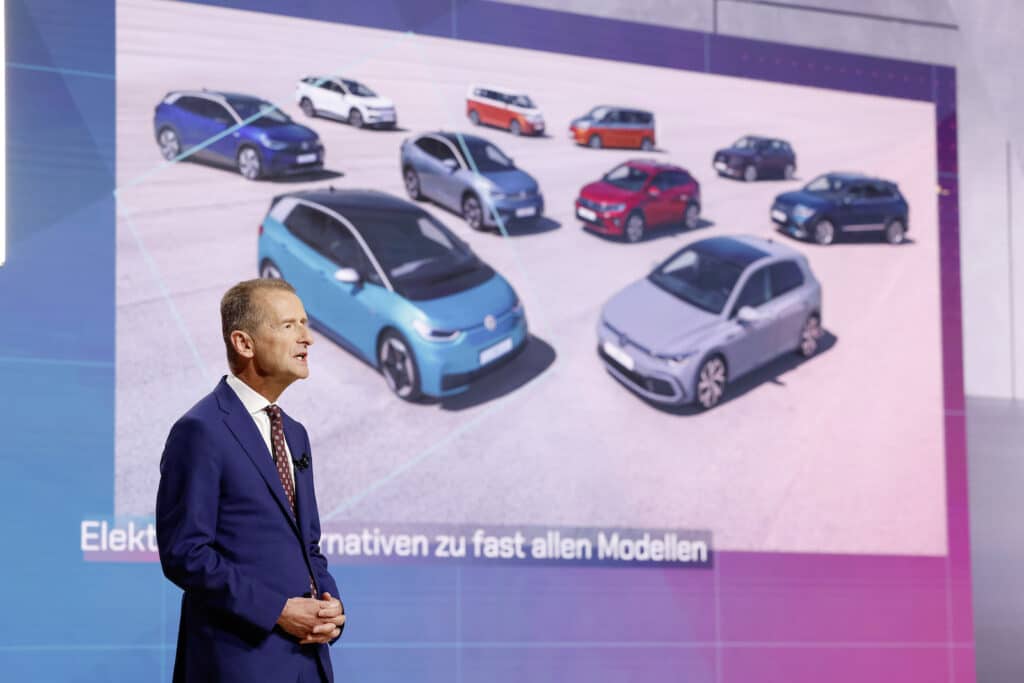Volkswagen CEO Herbert Diess will end his tumultuous tenure at the helm of the German automotive giant Sept. 1, handing the reins over to Oliver Blume, currently the CEO of Porsche.

Diess will leave by “mutual agreement,” VW said in a statement announcing the transition. The executive, who has been in seemingly constant conflict with the automaker’s powerful German union, was forced to relinquish his title as chief executive of the Volkswagen brand in 2020.
The question is what sort of changes in strategy might be made by Blume. He is expected to feel the same pressures from union leaders to roll back Volkswagen’s more than $100 billion transition to battery-electric vehicles — a move Diess acknowledged will cost jobs. The outgoing chief executive also put in motion plans for a Porsche IPO, though Blume had been a backer of that plan.
“Diess played a key role in advancing the transformation of the company,” Volkswagen said in a statement. “The Group and its brands are viable for the future; its innovative capabilities and earning power are strengthened. Mr. Diess impressively demonstrated the speed at which and consistency with which he was able to carry out far-reaching transformation processes. Not only did he steer the company through extremely turbulent waters, but he also implemented a fundamentally new strategy.”
Riding the rollercoaster

The 63-year-old executive has been on a roller-coaster ride since joining Volkswagen in 2015, just months before the automaker’s diesel emissions scandal broke. He subsequently was prosecuted — but avoided conviction — for allegedly failing to disclose details of the affair to stockholders.
In 2018, Diess was listed as one of the “Best CEOs in the world” by CEOWorld magazine. He also took heat earlier this year for pushing the EU to negotiate a peace deal with Russia after its invasion of Ukraine, something he said was needed to protect European trade interests.
But Diess’s biggest challenge was dealing with IG Metal, the powerful German trade union. With seats on the automaker’s supervisory board, it aggressively resisted the CEO’s push to electrify — and the apparent loss of union jobs that would result in. He had indicated as many as 30,000 VW jobs could eventually be cut.
“The dynamics of change in the automotive industry are enormous … The decisions taken today will allow us to keep up the pace and exploit the lead we have carved out.” said Joerg Hofmann, president of IG Metall, and deputy chairman of the VW supervisory board, in a statement Friday.
Diess was forced to relinquish his position as brand CEO in 2020, but he held on as chief executive, largely due to the support of the Porsche and Piech families — heirs to Volkswagen founder Ferdinand Piech.

Key issues remain for Blume
There seems little likelihood that, as CEO, Blume will make immediate cuts in an EV program that is expected to bring as many as 50 all-electric models to market by 2025 through the Volkswagen Group’s many brands. Some, notably including high-line Audi and Bentley, have laid out plans to go 100% electric in the coming decade.
The other question is whether the IPO for Porsche expected later this year could be impacted, several analysts said. But Reuters quoted “a source close to” the plan as saying, “I know Blume always also pushed for the IPO. So don’t think they’ll reverse the decision.”
Diess’s forced resignation appears to have followed a loss of support by the Porsche and Piech families. Along with the turmoil over the electrification program, another factor may have shifted their positon: the continued decline in the automaker’s stock price over the last 18 months.
A “well-deserved break” that will last longer than expected
The Bavarian-born Diess himself had raised concerns by suggesting VW was losing ground to chief EV rival Tesla. Ironically, VW holds a 25% share of the fast-growing European battery-car market, with Tesla at just 13 percent. But the U.S. brand recently opened a new factory in Berlin, barely an hour away from Volkswagen headquarter in Wolfsburg, that is expected to help it quickly grow its European share.
How sudden the shakeup at Volkswagen came on is unclear but earlier on Friday, Reuters noted, Diess had posted a comment on LinkedIn which hinted at the pressure he was facing, noting “After a really stressful first half of 2022 many of us are looking forward to a well-deserved summer break.”
He’ll now have all the time off he desires, barring a new job offer.







